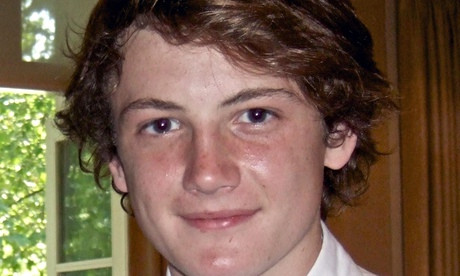Horatio Chapple: Polar Bear Killed Eton Teenager 'Following Trip Wire and Rifle Failures'

The death of a British teenager who was mauled by a polar bear in Norway could have been avoided were it not for defective equipment and insufficient rifle training, according to a report.
Horatio Chapple, 17, was killed on a trip to the remote Svalbard islands in Norway with the British Schools Exploring Society (BSES) in August 2011.
Four others were injured by the polar bear in an attack which "lasted no more than a few minutes" before it was shot dead.
The report, by former High Court Judge Sir David Steel and commissioned by the BSES, was published to coincide with the inquest into Horatio's death, which opened on 7 July.
Horatio, a student at Eton, was killed after the polar bear "ripped open" the tent on the 17-year-old's side, dragged him out and caused mortal wounds to his head.
The polar bear managed to approach the camp after the trip wires the group used to detonate explosive devices to scare off the animal failed. The report said the trip-wire system the group used was "defective in terms of missing pieces of equipment" and the paperclips the groups used to repair the mechanism failed.
Steel said that instead of using the "inconsistent" trip-wire defence, which should be treated as a "secondary protection device", a 'bear watch' should have been but in place to guard against any potential approaches.
The report also recommends a "rigorous upgrade of rifle training", referring to how after the expedition's science leader - identified in the report as L2 - fired at the bear four or five times, on each occasion a bullet "simply ejected on to the ground leaving the rifle empty" because it was not set up properly.
L2 eventually managed to reload and fire at the bear. However, the report states if the 80-year-old weapon had been set up correctly "this would probably have led to the bear being shot" earlier.
"If killed, there would have been no further injuries. Whether the life of Horatio would have been saved must remain very uncertain," it said.
In future a bear watch must become the norm for expeditions to Svalbard. There needs to be a complete review of available trip-wire systems, but they should be treated only as a secondary protection device. There needs to be a rigorous upgrade of rifle training.
Steel adds: "This tragedy was caused by the rare occurrence of an intrusion of a starving polar bear into a camp situated well inland in Svalbard.
"It was a remote possibility but not unforeseeable.
"The chosen method of protection in the form of a trip-wire system was entirely in accord with advice of the Norwegian authorities and industry practice. But it was defective in terms of missing pieces of equipment.
"In any event, with hindsight it is not in fact an adequate substitute for a bear watch which, if established, would have been likely to warn of the approach of the bear in time to prevent the attack."
"It would appear likely that the bear must have ripped open the tent on Horatio's side. It then dragged Horatio out causing serious, indeed probably mortal wounds, to his head. The screaming and shouts of 'bear' woke the rest of the camp. Horatio appeared to try and sit up or even attempt to stand whereupon the bear reared up and slammed into him. He fell to the ground. He was not seen to move again."
The report also praised Horatio and the other members of the group for showing "great courage in the face of the attack".
Edward Watson, the chair of BSES, now known as British Exploring, said: "First and foremost, I would like to reiterate our deepest sympathy for Horatio's family, our sorrow that such a tragedy occurred on one of our expeditions and our sincere regret at the death of a fine young man. Horatio epitomised everything a young explorer should be and will not be forgotten."
The inquest into the teenager's death is expected to conclude on Friday (11 July).
© Copyright IBTimes 2025. All rights reserved.




















